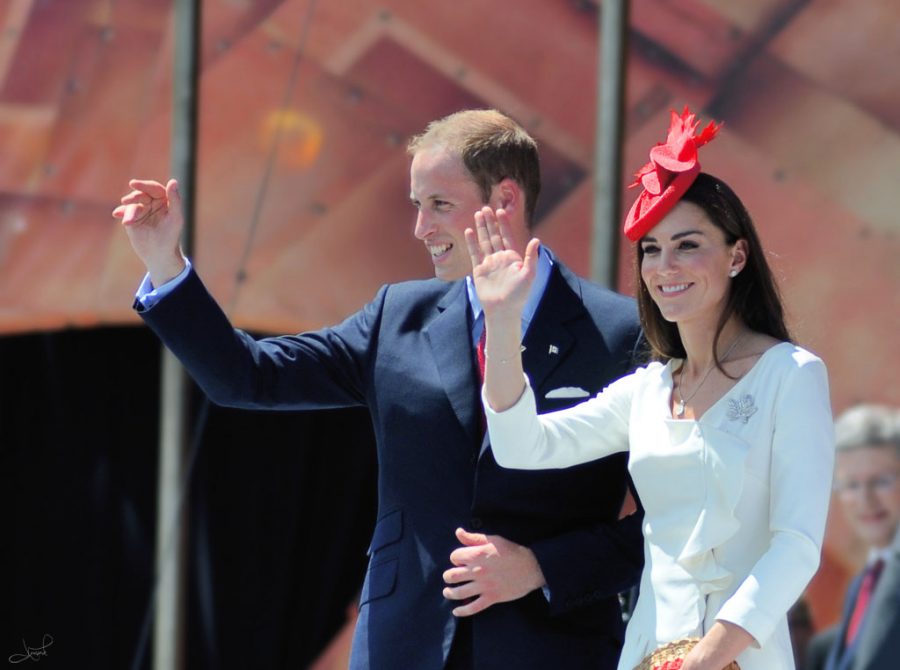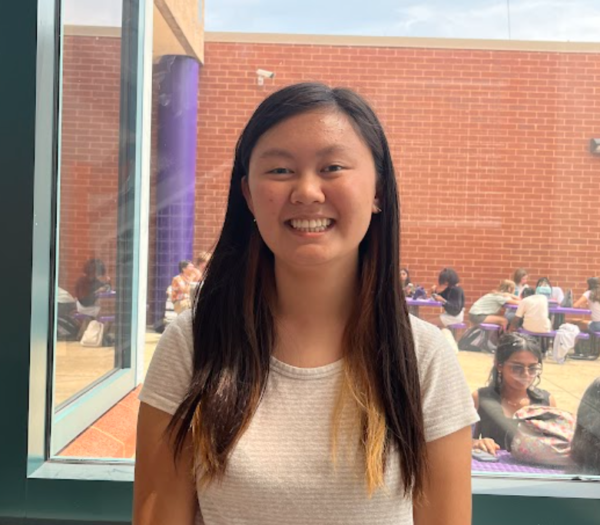British royal family’s real duties disguised by drama
Image Courtesy: tsaiproject, Licensed under the Creative Commons Attribution 2.0 Generic | Flickr
Prince William and Duchess Kate wave to a crowd in Canada.
April 20, 2021
Whether it be about a new hat, a new marriage or a new baby, the British royal family constantly appears in the headlines. The recent death of Prince Philip has generated mourning around the world, and the Oprah interview with Prince Harry and Duchess Meghan Markle has amassed over 20 million views on YouTube, positioning itself at the forefront of the news. Many are entertained by finding out about rifts in the seemingly pristine family, but many do not actually know what the royal family’s real purpose is.
While the current royal family, the House of Windsor, began with King George V in 1917, the British monarchy has existed for over a thousand years, establishing itself somewhere between 800 and 900 CE. Since then, the royal family has played an important role in Britain’s history and society.
“I think the main purpose of the royal family is how they represent the culture of England,” freshman Grace Paul said. “Whereas the prime minister represents the people, the royal family represents the country and the history of it.”
According to their official website, the royal family carries out a variety of tasks for the wellbeing of the commonwealth. They do not have any political power, but instead go to engagements and banquets, visit other countries, donate to charities and support publicity-centered activities. Most importantly, they aim to reinforce national unity.
“I believe that the royal family succeeds in keeping morale up,” junior Thomas Chia said. “For example, if you take a look at the wedding of Megan and Prince Harry, the wedding brought a lot of people to celebrate together.”
The royal family includes one queen, eight princes, three duchesses, four princesses and other members with various titles. This is one reason why news so frequently covers them.
Each member of the royal family has different names in the numerous locales that are a part of Britain, such as Duchess Meghan of Sussex, Prince George of Cambridge and Princess Beatrice of York.
Queen Elizabeth II has the highest position of power. She received her title in 1952, making her the longest-ruling British monarch. The Queen and the Crown Estate are the world’s largest non-governmental landowners, the land being inherited through the years.
“They own that much land because it has been passed down throughout generations,” Paul said. “As long as there is enough land to do public projects and for the people themselves, it’s okay to own that much land. It’s also one main factor that differentiates the royal family and the ‘common folk.’”
Their wealth, another component that separates the royal family from the rest of the world, is sustained by the Sovereign Grant, which sources from British tax money and Crown Estate profits. According to Insider, the government paid them £82.2 million (or about $113 million) in 2019. In exchange for this money, remaining revenue from the Crown Estate, more than £250 million (or about $356 million), is given to the government.
Even though the royal family only fulfills duties for Britain, events of their inner lives and happenings are covered by countries all over the world.
“The Royals are more interesting [than celebrities] because they’re not just famous people, they’re royal too,” Paul said.
The future monarch can be predicted by the line of succession with Prince Charles of Wales next in line. While many argue over the actual importance of their existence, the royal family has left and will continue to leave an impact on the British legacy.
“It’s hard to decide who deserves to be famous or who deserves to be popular,” Chia said. “Thus, it becomes a matter of public image and how the royal family — and how each generation of the family — will go down in history.”



